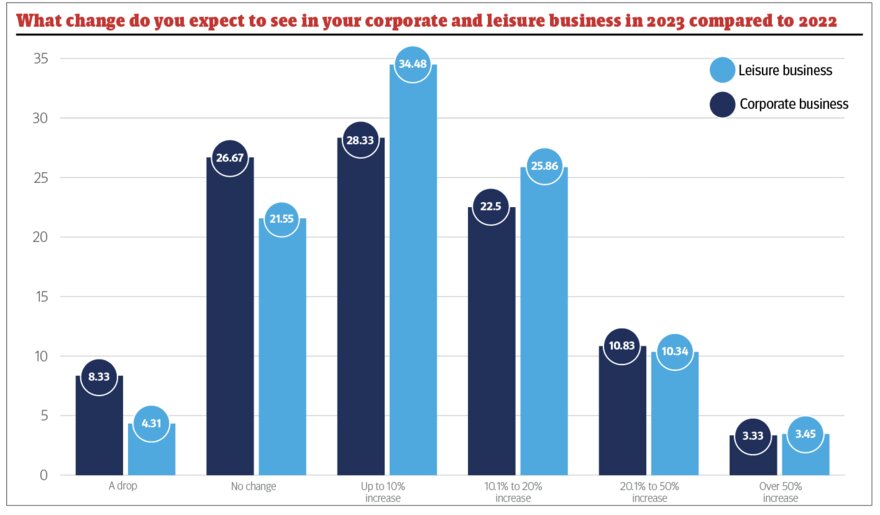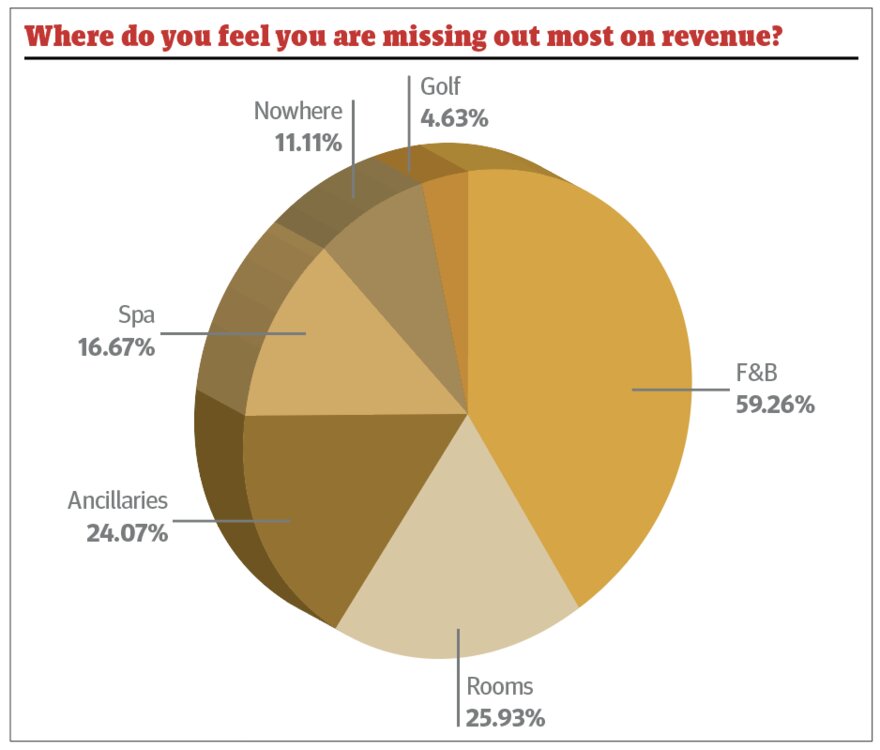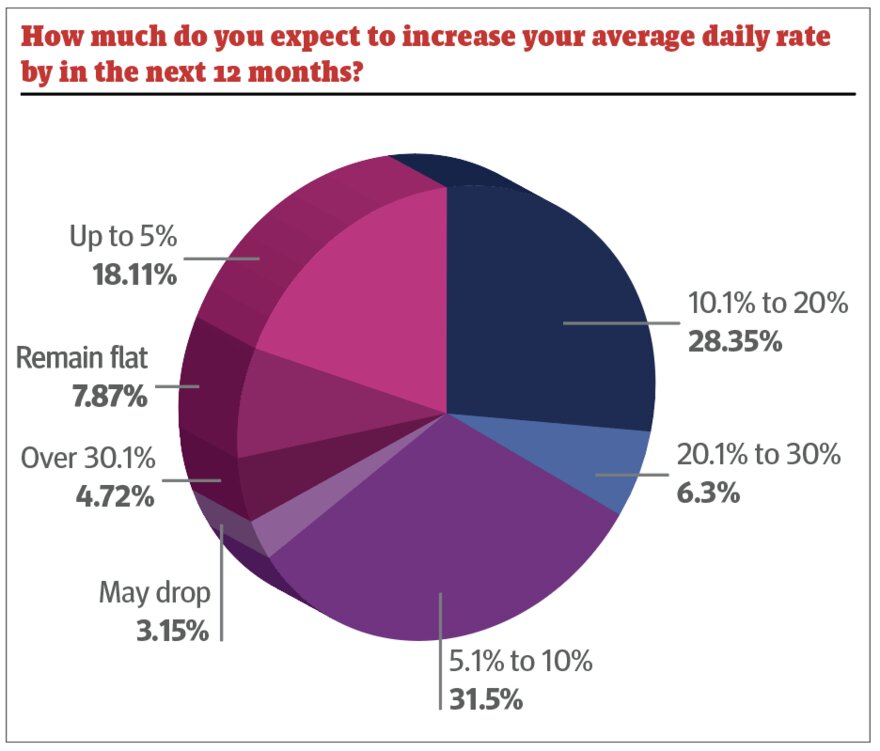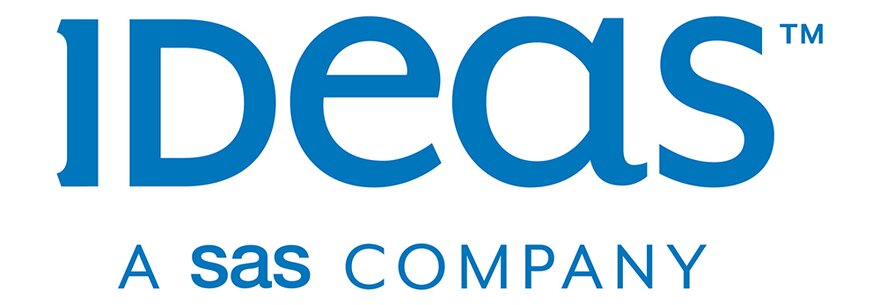An increase in costs almost inevitably leads to higher rates, but there's a more strategic way of managing hotel finance, according to research by The Caterer in partnership with IDeaS
With the economic buzzword of the moment being inflation, there is little surprise that the hotel sector has seen significant growth in room rates in the past year. But new research has found that though operators are undoubtedly realising some compensation for rising input costs, few are really driving all revenue streams available to maximise returns.
Average daily hotel rates have risen sharply in the past 12 months, according to a survey conducted by The Caterer in partnership with revenue management software and services provider IDeaS. It has found an increase in demand from both business and leisure coupled with rising costs across the board driving rates to record levels.
The research bears out the anecdotal buoyancy of the UK hotel industry. Average daily rate (ADR) has increased by 13% in the past 12 months, with 88% of respondents saying that ADR has increased and 7% of respondents reporting an increase of over 30%. The top three reasons given for ADR increase are unlikely to come as a surprise to anyone working in hospitality: increased energy costs (73%), staffing costs (68%) and purchasing costs (40%). The next 12 months tell a similar story, with 87% of respondents expecting an ADR increase with an average of 10%.
"I am not surprised by these figures," says Jane Pendlebury, chief executive of HOSPA, the hospitality professionals association. "With rising costs both for employees and in the supply chain, hotels need to increase income from room sales. Plus there has been a lot of demand from when hotels were not permitted to welcome leisure guests."
That demand has shown no signs of abating: 74% of respondents expect an increase in their leisure business over the next 12 months, with an average increase of 11%. It is a similar story with corporate clients, with 65% of respondents expecting an average increase of 10% and similar figures for group business. While Pendlebury says the volatility of the last three years has made benchmarking tricky, HOSPA has undoubtedly seen a more consistent return to business travel over the last six months. "And there is a trend towards corporate travellers extending their business trips to incorporate some leisure," she adds.
Put a plan in place
Against such a backdrop the role of a revenue manager or commercial director has arguably never been more important, but 27% of respondents said their company does not have any sort of formal arrangement; likewise 29% said they had no integrated revenue strategy for business units such as rooms, food and beverage and spa.
While Pendlebury says she would be surprised if those businesses have no data analytics going on at all, she stresses the importance of having some sort of system in place. "Hotels with no revenue management strategy should put a strategy together, with some basic methodology in place to evaluate the capacity to increase demand and command better rates. It is always worth working out your competitive set and then benchmarking against their pricing and thereafter results."
Nine out of 10 respondents said they felt they or their team have the skills to adapt pricing in a fast-moving marketplace. Overall pricing, selling strategy, data analysis, reaction time and cross-department co-ordination were all seen as opportunities to improve pricing. For the 12% of respondents who felt they do not have the skills, reaction time and change management are the key challenges.
However, when respondents were asked how operationally efficient in pricing and distribution they feel their hotel is, only 56% said ‘to an extent, most of the time'. Revenue per available room (revpar) was cited as the number one KPI for generating revenue; on the flipside, 59% of respondents said F&B was the biggest area of their business missing out on revenue, followed by rooms (26%), ancillaries (24%) and spa (17%).
"F&B and other ancillary revenues are often overlooked by revenue managers whose job role is defined or geared around bedroom management," Pendlebury says. "In 2023, however, the revenue manager's job is morphing into a much more commercial role looking at the whole picture. The ideal situation is to have all hotel staff fully engaged with the principles of revenue management and to be encouraged and empowered to upsell at any stage of the guest journey."
Automating training
Half of respondents said that ad hoc courses were the most common training for their revenue team members, followed by self-learning (44%) and conferences and events (36%). But the survey suggests there is also scope for all members of staff to receive some sort of revenue management training.
Sibylle Luger, regional vice-president – account management, EMEA and APAC at IDeaS, is surprised by how little formal training was provided to revenue managers. "How are hotels going to be prepared in the future to lead revenue managers?" she asks. "And to develop revenue managers that actually can communicate the vision of the revenue management strategy? I think revenue managers need to have influence, I think they need to have presence, the survey suggests that it's still a little bit of an afterthought."
Despite the fact that revenue management systems (RMS) can automate processes to free up time, the survey revealed that over one-third of UK hotels still do not have an RMS and, of those that do, 17% use a system that is not automated.
"The worry that RMS would replace jobs has been around since before I started working in the industry," says Luger. "I went out and tried the system in various places all across globe, and some revenue managers embraced it, and they were typically the ones who managed best with it. Because they don't fight it and they think about what it can do to help them become better at their job."
"I find it's still a symptom of the industry, I don't know if it comes because the hotel industry is so strongly about service, that sometimes people still feel ‘I have to do it manually and I have to do everything'."
The top three reasons given for making an automated RMS more attractive were a cheaper service fee, simple system integration and access to data and more experienced or trained staff at the hotel. However, Pendlebury believes, ignoring the benefits of an RMS might be a false economy: "Depending on the category of hotel and how sophisticated they already are, there is usually an opportunity to increase revenues with some smart, analytically-based decisions," Pendlebury says.
"Often the increased revenue will more than pay back the investment into an RMS. Importantly, an automated RMS will take away the mundane tasks from the revenue manager, allowing them the time to think more strategically and to share the hotel's strategy among all the employees. Revenue managers can demand a high salary, but are more often than not worth their weight in gold."
IDeaS, a SAS company, is the world's leading provider of revenue management software and services.With over 30 years' of expertise, IDeaS delivers revenue science to more than 22,000 clients in 152 countries. Combining industry knowledge with innovative, data analytics technology, IDeaS creates sophisticated yet simple ways to empower revenue leaders with precise, automated decisions they can trust.
Results delivered. Revenue transformed. Discover greater profitability at ideas.com














